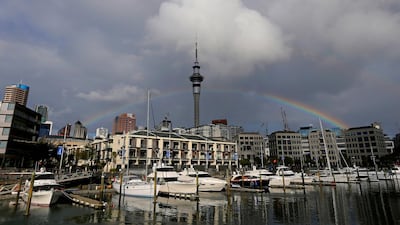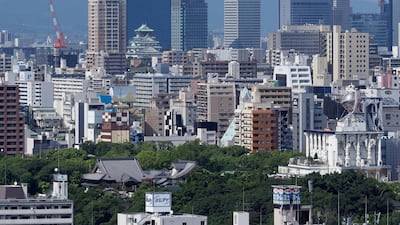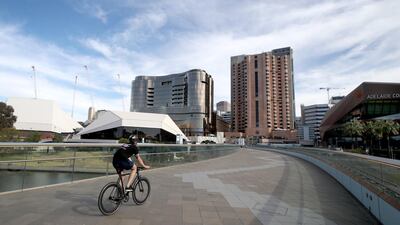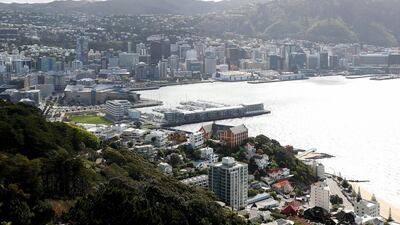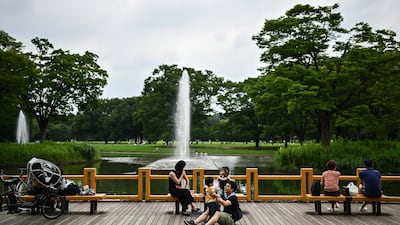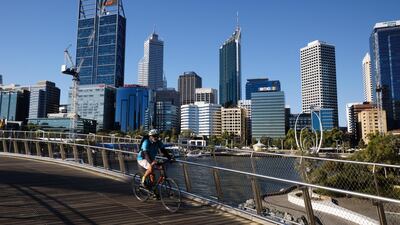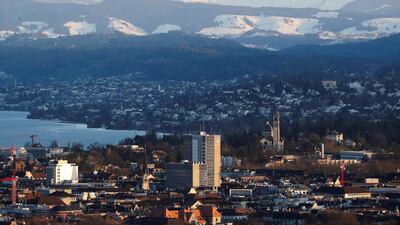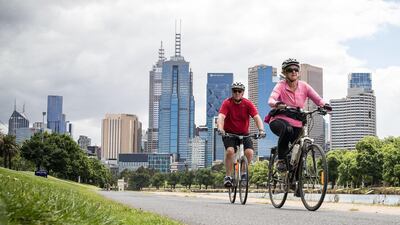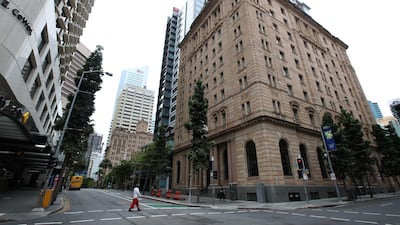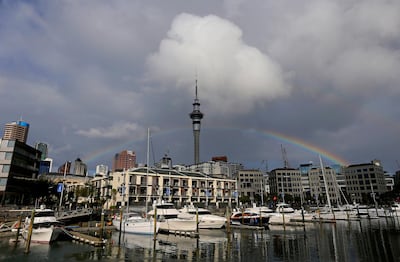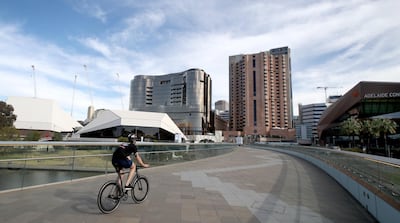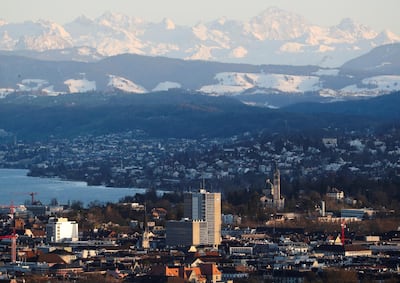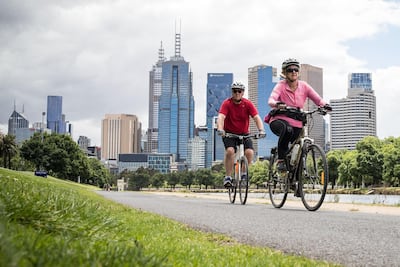Auckland in New Zealand has come out on top in a global ranking of cities that offer the best quality of life for residents.
Named the world’s most liveable city in a new report by the Economist Intelligence Unit, the buzzing metropolis stole the top spot, in large part, for the way it has handled the current Covid-19 pandemic.
This is the first time the city has led the rankings.
The Liveability Index examined 140 cities worldwide to quantify the challenges presented to an individual’s lifestyle in the past year, taking into account the disruption caused by the virus outbreak.
With a population of more than 4.9 million people, New Zealand has reported only 26 deaths from the disease since Covid-19 was declared a pandemic.
And while many cities around the world were in the midst of strict lockdowns last year, residents of Auckland, on the North Island, were already attending music concerts with thousands of revellers in tow.
The global contenders for the list were scored from one to 100 – 100 being the best – across five categories including stability, health care, culture and environment, education and infrastructure.
Osaka in Japan came in a close second, scoring top marks in the stability and healthcare index.
Interestingly, of the top 10 cities ranked most liveable, six are in New Zealand and Australia.
The data was gathered between February and March this year, when cities were at different stages of their battle against the pandemic.
Auckland
Auckland climbed five spots from its 2020 ranking and secured top spot this year after the Covid-19 pandemic resulted in a major shake-up.
New Zealand’s elimination of the virus within its borders, and a consequently low Covid-19 case count, fared well for its cities.
For most of the past 15 months, New Zealand has been able to keep its theatres, restaurants and other cultural attractions open.
“Auckland, in New Zealand, is at the top of The Economist Intelligence Unit’s Liveability rankings, owing to the city’s ability to contain the coronavirus pandemic faster and thus lift restrictions earlier, unlike others around the world,” the report read.
The city scored top marks of 100 in the education sector as pupils have been able to continue going to school throughout the pandemic.
Osaka
Osaka was one of two Japanese cities to feature on the top 10 list following analysis in February and March this year.
With a population of about 2.6 million, it scored an overall mark of 94.2 on the index, and secured top marks in the stability and healthcare categories.
Recently, however, Japan has hit the headlines as the government declared a state of emergency in Tokyo, Osaka and the surrounding areas in April in an effort to stem the spread of Covid-19 in the lead up to the hosting of the summer Olympics.
Adelaide
In third place is Adelaide in Australia, which also imposed a ban on international travel to stem the spread of infection early on.
As per the report, the coastal city, in south Australia, scored an overall ranking of 94 on the index and secured a mark of 100 in the healthcare and education categories.
While the healthcare scores fell after the onset of the pandemic in most cities across the world, the least affected cities were concentrated in western Europe and the Asia-Pacific region.
Adelaide was one of four Australian cities to make the top 10 list.
Wellington
Like its close neighbour Auckland, Wellington also gained from New Zealand’s relative freedom throughout the pandemic, moving from 15th place in 2020 to joint fourth place in the current rankings.
The New Zealand capital, which boasts a powerful mix of culture, history and nature, received top marks for how it handled education during the outbreak, as pupils attended in-person lessons throughout.
With an overall ranking of 93.7, it tied with Tokyo in Japan.
Tokyo
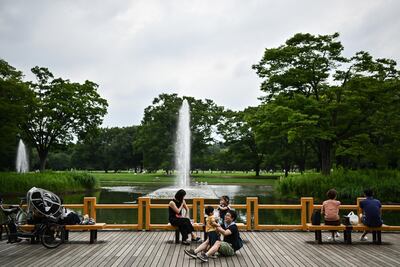
Tokyo is the second Japanese city to appear on the top 10 list and with an overall index rating of 93.7, it scored 100 across the stability and healthcare categories, 84 for culture and environment, 91.7 for education and 92.9 for infrastructure.
Osaka and Tokyo “ranked second and fourth, respectively, owing to continued high stability scores”, the report said.
Unsurprisingly, the majority of the healthcare scores in The Liveability Index rankings were affected badly by the pandemic. Compared with six months ago, the average city score for health care dropped by nearly five points.
Perth
Australia’s tough-on-coronavirus stance has resulted in numerous cities from the country making the top 10 list this year.
In western Australia, especially Perth, the strategy of dealing with the outbreak, including mandatory masks, social restrictions and an emphasis on testing, tracing and isolating potentially exposed people, has worked.
“Since the pandemic started, curbs on public gatherings have also had a major impact on scores under the culture and environment category,” the report said.
“The average score for this category fell by 14 points compared with the autumn 2019 survey. Some of the social and cultural restrictions have been lifted since September 2020 in some parts of the world
“New Zealand and Australian cities have benefited the most from this trend.”
As per the latest rankings, Perth scored 100 in health care, education and infrastructure. It’s overall index ranking was 93.3.
Zurich
Zurich is one of two cities in Switzerland to be featured among the ‘most liveable cities’.
With an overall index score of 92.8, it fared well in the healthcare category, securing a score of 100.
The European city has been able to ease restrictions on outdoor gatherings as case numbers have dropped in recent months.
For the culture and environment category, Zurich scored 85.9. To move up the rankings for the next liveability, the city could improve green spaces as the pandemic has made residents value more outdoor space so they can safely socially distance.
Geneva
Over recent weeks, Switzerland has further relaxed its Covid-19 restrictions as infection rates stabilise and the vaccination rollout accelerates across the country.
The vaccination rollout has accelerated, reaching between 60,000-90,000 jabs a day. And between December and June, more than 5.1 million Covid-19 vaccination doses were administered to residents.
Geneva tied in eighth place with Melbourne in Australia and secured an overall index ranking of 92.5. Similarly to Zurich, the city scored the top mark of 100 for the healthcare category.
Melbourne
Melbourne was one of the biggest movers up the rank this year, and that was in large part to the way the local government have handled the covid-19 outbreak.
With an overall index ranking of 92.5, it gained an additional five points since its last appearance on the list. It also moved 16 places up the leader board.
Brisbane
Number 10 on the list is Brisbane, the capital of Queensland in Australia.
In recent months, the large city has enforced local, temporary lockdowns to act as circuit breakers when cases have been identified in certain areas.
Designed to immediately minimise everyone’s number of close contacts until the local government can establish whether an individual has caught the virus from the one known case, in large part, it has worked.
The city scored an impressive 100 in two categories, health care and education and an overall score of 92.4.
“The pace of recovery of liveability in most regions will be determined by how effectively the health risks of the pandemic can be controlled, through a combination of vaccination, testing, tracing and quarantine measures,” the report said.
“Barring huge setbacks, such as the emergence of vaccine-resistant variants, scores for culture and environment should improve.”
